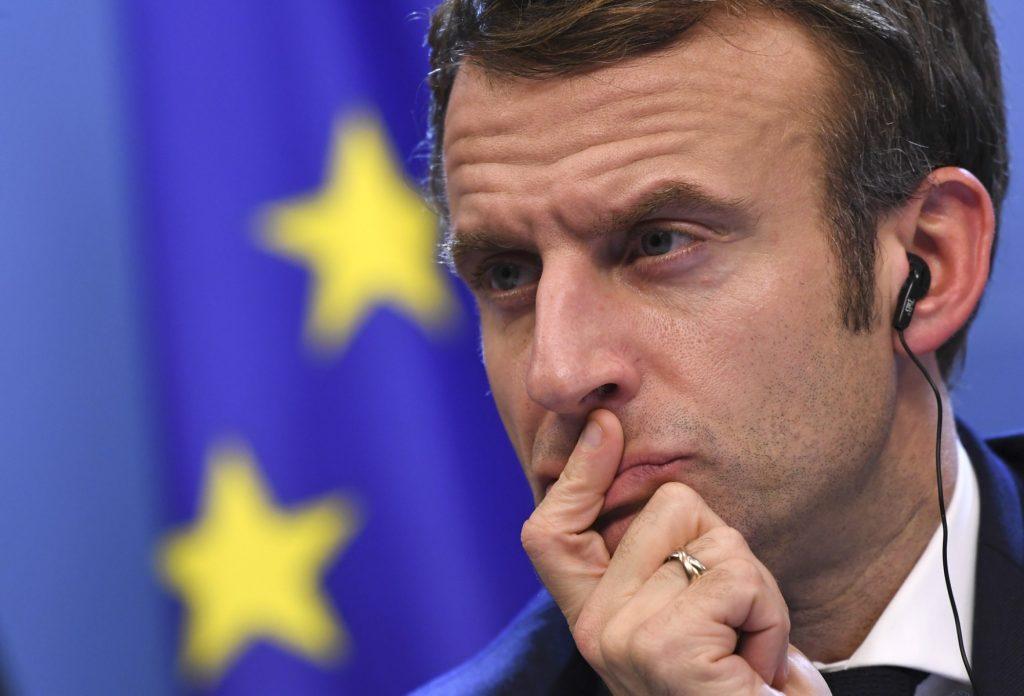Macron seeks to salvage power after France vote upset
The result of the parliamentary elections was a stunning blow for the president and his reform agenda, leaving his camp facing the prospect of a political deadlock.
Just In
French President Emmanuel Macron will meet party leaders including the far-right Marine Le Pen for talks, the Elysee said Monday, after he and his allies lost their overall majority in the legislative elections.
Macron’s discussions with opposition leaders will start on Tuesday with Christian Jacob, head of the traditional conservative Republicans (LR) party that has been in decline in recent months but could be courted to give Macron a parliamentary majority.
Socialist Party leader Olivier Faure and Communist Party boss Fabien Roussel, members of the NUPES left-wing alliance, will also meet Macron, although the hard-left Jean-Luc Melenchon, who leads Nupes, is not scheduled to do so.
In a rare encounter, Macron will also host Le Pen – his presidential election rival and leader of the far-right National Rally.
The aim is to “build solutions to serve the French” at a time when there is no “alternative majority” to that of Macron’s ruling alliance, said a presidential official who asked not to be named.
Representatives of the parliamentary parties will be received at the Elysee Palace separately and successively.
The result of the parliamentary elections was a stunning blow for the president and his reform agenda, leaving his camp facing the prospect of a political deadlock.
While Macron’s Ensemble (Together) coalition remains the largest party after Sunday’s National Assembly elections, it fell dozens of seats short of keeping the absolute majority it has enjoyed for the last five years.
Melenchon and Le Pen made big gains, leaving them as major players in the new parliament.
Resurgent opposition
The left-leaning Liberation daily called the results a “slap in the face” for Macron, while the conservative Figaro said he was now “faced with an ungovernable France”.
Macron’s Together alliance won 244 seats, well short of the 289 needed for an overall majority, in a low-turnout vote that resulted in an abstention rate of 53.77%.
Macron met Monday with his embattled Prime Minister Elisabeth Borne and two top allies, former premier Edouard Philippe and centrist leader Francois Bayrou.
The election saw Nupes become the main opposition force along with its allies on 137 seats, according to interior ministry figures.
But it appears unlikely the coalition of Socialists, Communists, Greens and the hard-left France Unbowed will be able to retain common cause in the legislature.
Melenchon, the France Unbowed chief who orchestrated the alliance, called its results “fairly disappointing” and proposed Monday to make Nupes a permanent left-wing bloc.
He said it would not be a full-on merger but simply an effective “alternative” force in parliament, though the offer was immediately rejected by the three other Nupes parties.
Premier vulnerable?
Meanwhile the far right under Le Pen posted the best legislative performance in its history, becoming the strongest single opposition party with 89 seats, up from eight in the outgoing chamber.
A confident Le Pen said her party would demand to chair the National Assembly’s powerful finance commission, as is tradition for the biggest opposition party.
“The country is not ungovernable, but it’s not going to be governed the way Emmanuel Macron wanted,” Le Pen told reporters Monday.
Melenchon said he would bring a motion of no confidence against Borne in early July, when she is to lay out her policy priorities for the next five years.
Borne could now be vulnerable as Macron faces a new cabinet shake-up after several of his top allies lost their seats.
His health and environment ministers were beaten and by tradition will have to resign, as did the parliament speaker and the head of Macron’s parliament group.
The outcome tarnished Macron’s April presidential election victory when he defeated Le Pen, when he became the first French president to win a second term in over two decades.
‘A lot of imagination’
The options available to Macron range from seeking to form a new coalition alliance, passing legislation based on ad hoc agreements, or even calling new elections.
One option would be an alliance with the Republicans, which has 61 MPs.
But LR president Jacob has insisted his party intends to “stay in opposition”.
Macron had hoped to mark his second term with an ambitious programme of tax cuts, welfare reform and raising the retirement age. All that is now in question.
In a rare bit of good news for the president, Europe Minister Clement Beaune and Public Service Minister Stanislas Guerini – both young pillars of his party – won tight battles for their parliamentary seats.
Subscribe to our newsletter
To be updated with all the latest news and analyses daily.
